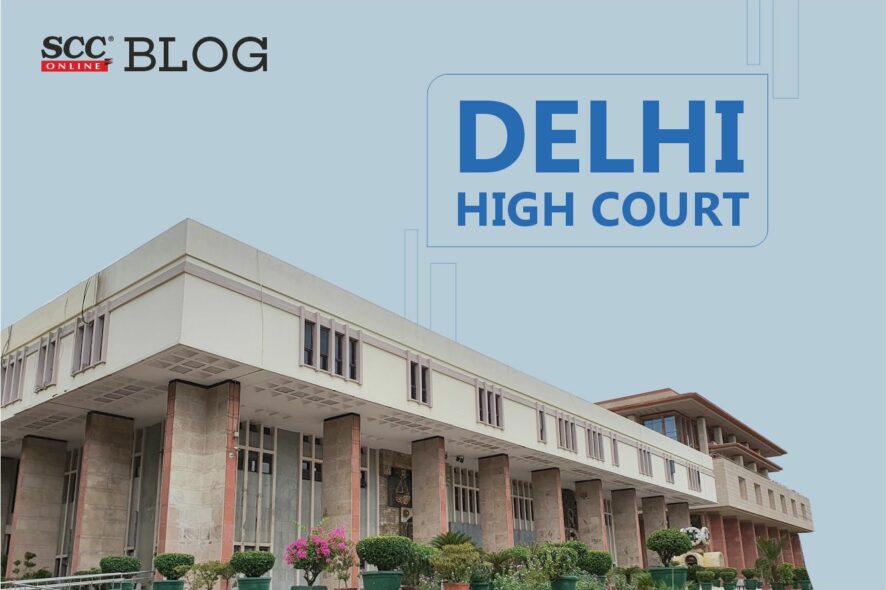Delhi High Court: While deciding the instant appeal directed against the judgment of conviction and order of sentence passed by Special Court (NDPS) District Central, the Single Judge Bench of Purushaindra Kumar Kaurav, J. held that there was non-compliance of the provisions of Section 50 of the Narcotic Drugs and Psychotropic Substances Act, 1985 (NDPS Act) therefore, the conviction of the appellant was set aside.
Facts of the Case
In the present case, a Sub Inspector received secret information that the appellant was likely to supply charas in heavy quantity. So, after approval from higher authorities, a raid was conducted. The appellant was offered that his search could be conducted before any Gazetted Officer or Magistrate, if he so desired. The appellant did not opt for a search to be conducted in the presence of the Gazetted Officer. Accordingly, the reply of the appellant was noted in the notice given to him under Section 50 of the NDPS Act. Thereafter, a formal search was conducted of the appellant and of the thaila of the appellant and a total of 5kgs charas was found in that thaila. The appellant was arrested and was charged under Section 20 of the NDPS Act.
Submission on behalf of the Appellant
It was contended that there was non-compliance of the provisions of Section 50 of the NDPS Act and though the personal search of the appellant was conducted, he was not informed of his legal right of his personal search in the presence of Gazetted Officer or Magistrate.
Submission on behalf of the State
It was contended that the judgment of conviction and sentence was strictly in accordance with law. Moreover, the requirement of Section 50 of the NDPS Act was complied with and an option was given to the appellant to opt for his personal search in the presence of a Magistrate. Since the appellant did not opt for this option, the prosecution cannot be blamed and on this ground the conviction and sentence cannot be interfered with. Therefore, the judgment of conviction and sentence did not call for any interference.
Question for Consideration
Whether the accused was to be necessarily informed of his right to search in the presence of Magistrate or whether there can be option given to him for his search being conducted in the presence of a Gazetted Officer or a Magistrate under Section 50 of the NDPS Act?
Analysis, Law, and Decision
The Special Judge after considering the entire material available on record found that the seized contraband was of commercial quantity and the prosecution had successfully proved their case beyond reasonable doubt and accordingly convicted the appellant under Section 20 of the NDPS Act.
To appreciate the submissions of the appellant, this Court considered few decisions on which the counsel for the appellant relied on:
-
State of Punjab v. Baldev Singh, (1999) 6 SCC 172, where the Supreme Court held that “if the accused, who was subjected to search was merely asked whether he required to be searched in the presence of Gazetted Officer or a Magistrate, then it cannot be treated as communicating to him that he had right under law to be searched so”. Accordingly, the Supreme Court concluded that there was non-compliance of Section 50 of the NDPS Act and consequently in the absence of any other independent evidence to show that the appellant was in possession of the contraband article, he was acquitted.
-
SK. Raju v. State of West Bengal (2018) 9 SCC 708, where the Supreme Court was dealing with the issue as to whether Section 50(1) of the NDPS Act was required to be complied with, when charas was recovered only from the bag of the appellant/accused therein and no charas was found on his person. It was held that as soon as search of a person takes place the requirement of mandatory compliance with Section 50 of the NDPS Act was attracted irrespective of whether contraband had been recovered from the possession of the detainee or not. It was also held that it was imperative for the officer who had undertaken the search to inform the appellant of his legal right to be searched in the presence of either a Gazetted Officer or a Magistrate.
-
Arif Khan v. State of Uttarakhand (2018) 18 SCC 380, where the Supreme Court held that the suspects may or may not choose to exercise the right provided to them under Section 50 of the NDPS Act but as far as the officer is concerned, an obligation is cast upon him under Section 50 of the NDPS Act to apprise the suspect of his right to be searched before a Gazetted Officer or a Magistrate.
The Court concluded that “the requirement of Section 50 of the NDPS Act was mandatory, and it was not only an option to be given to the accused, but he had to be informed about his legal statutory right which he enjoys for his search to be conducted in the presence of the Gazetted Officer or a Magistrate. If the notice under Section 50 of the NDPS Act in the instant case was examined, the same would clearly indicate that the appellant was not informed of his legal right to be searched in the presence of Gazetted Officer or the Magistrate. What was informed to him, was that as if he desires, he can be taken to Gazetted Officer or the Magistrate”.
The Court also observed that the appellant was searched but no recovery was found and the recovery from the thaila which he was holding in his hand had been affected, but still there was non-compliance of the provisions of Section 50 of the NDPS Act.
Accordingly, the conviction and sentence of the appellant was set aside.
[Kamruddin v. State (NCT of Delhi), 2022 SCC OnLine Del 3761, decided on 10-11-2022]
Advocates who appeared in this case:
For the Appellant(s): Advocate Harsh Prabhakar
Advocate Dhruv Chaudhary
Advocate Anirudh Tanwar
For the Respondent(s): Additional Public Prosecutor Utkarsh







